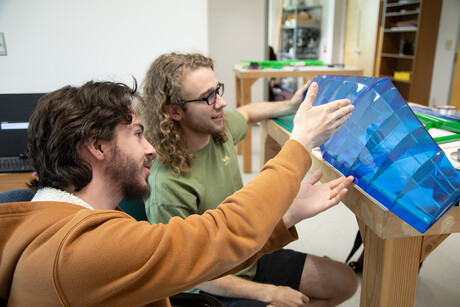For many decades, we have marketed our Adventist schools by quoting statistics and test scores. We talk about the more than 85 percent of our students who attend college and the more than 80 percent of those who begin college who complete a degree. We talk about the nearly 100 percent of our teachers who are certified and student performance which is close to the 70th percentile on nationally normed standardized tests. Is all this talk mere propaganda? Do we have empirical evidence that leads to the conclusion that there is an Adventist advantage?
Parents who still want to be convinced that their children will receive a quality education in the Adventist school system ask questions like: How do our Adventist elementary and secondary schools measure up to their public and private counterparts? Is the North American Division (NAD) Adventist curriculum comparable or superior? Do Adventist teachers have the “right stuff” that the denominational certification process is expected to instill?
Are these legitimate concerns? You bet they are! These concerns are to be addressed in a new study developed by the La Sierra University School of Education. It will seek to answer the question, “What impact does Adventist education have on the academic performance of students?”
A definitive answer, based on valid, reliable, empirical data, will lead to one of two possible outcomes, either of which will prove beneficial to Adventist education:
1. The validation of Adventist education in terms of students’ measurable academic performance, or
2. The identification of areas needing improvement.
The title of this new study is CognitiveGenesis. A pilot study is currently underway in the Pacific Union Conference. CognitiveGenesis will be comprehensive, with most all of the Adventist elementary and secondary students across North America involved for a period of three years. CognitiveGenesis will use valid, reliable data and statistical tests. The study will allow cause and effect to be explored by removing biases. The demographic composition will include four groups:
1. Adventist students attending Adventist schools.
2. Non-Adventist students attending Adventist schools.
3. Adventist students attending non-Adventist schools.
4. Non-Adventist students attending non-Adventist schools.
Parents and teachers will also be a part of the research. Parents will be asked to complete a brief survey to facilitate the study. Teachers will be asked to perform an additional tally procedure when administering the standardized tests. These joint efforts will provide much-needed answers on how Adventist students compare with counterparts in other school systems.
Ellen G. White, in the book Education, describes true education as the harmonious development of the physical, mental and spiritual powers. In the landmark study ValueGenesis we have attempted to measure the success of faith in learning in our schools. In CognitiveGenesis we will attempt to measure the mental advantages and later studies may focus on the physical advantages.
One of the researchers involved in this study put it this way, “CognitiveGenesis can help Adventist education determine if our schools are developing ‘thinkers and not mere reflectors’ of other people’s thoughts.” Isn’t the calling of Adventist education to develop true thinkers–young people equipped with sound academics to serve God and their fellow man?
Is this a scary initiative? Not at all. Self-examination led by the Spirit can only be helpful as we plot a course for the future. Could we find out things we don’t want to know? Yes, possibly. However, what an opportunity to make Spirit-directed changes, if needed, to benefit our kids and help them be ready for this world and the better one to come.
We hope this CognitiveGenesis study will build faith in both our students and parents that our Adventist school system is truly a gift from God. Our members, our parents, and certainly our students deserve this study and this attempt to do our very best to prepare them for life here and hereafter. We want our schools to be the embodiment of our NAD education motto, “A Journey to Excellence.”











